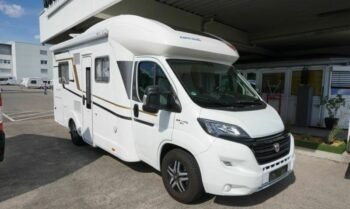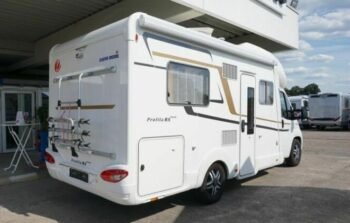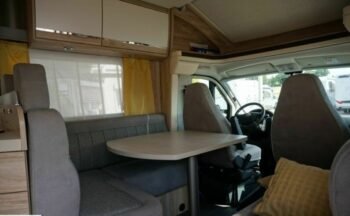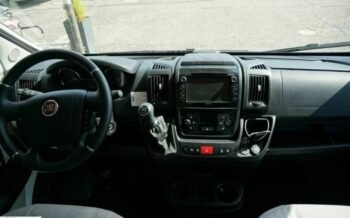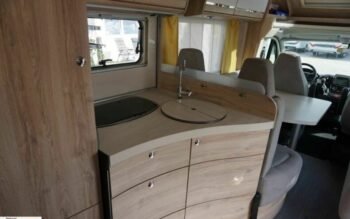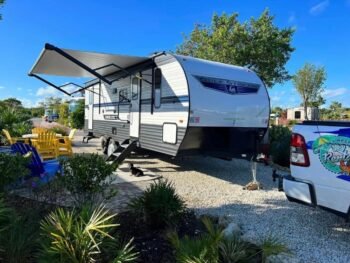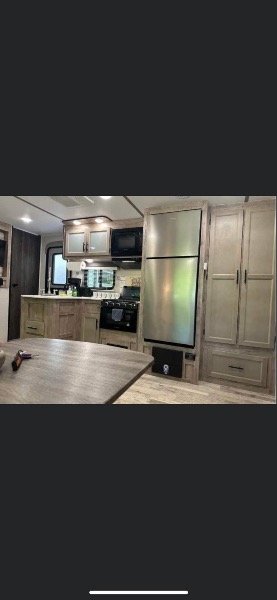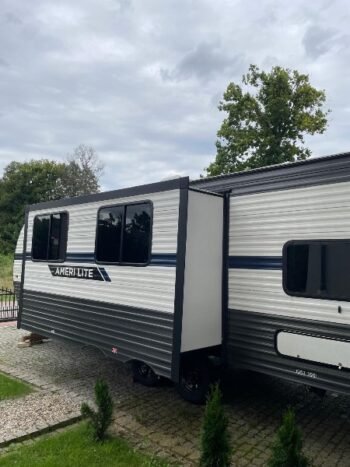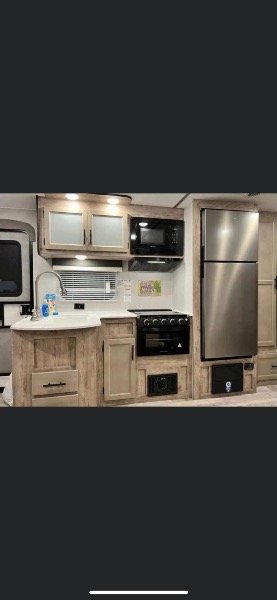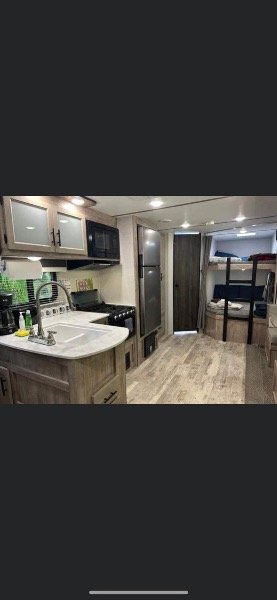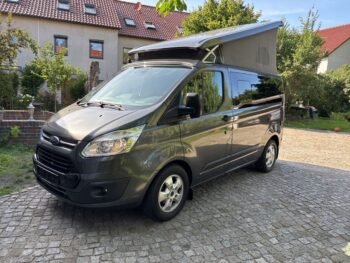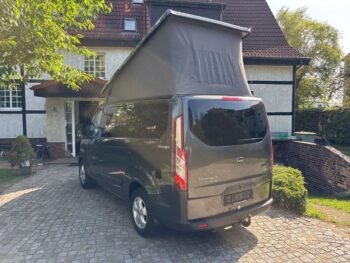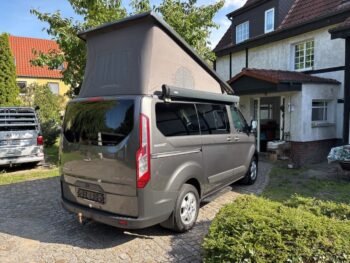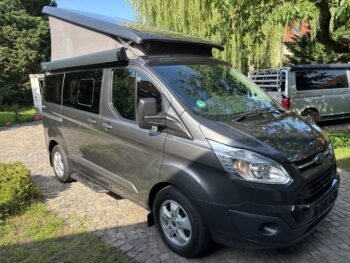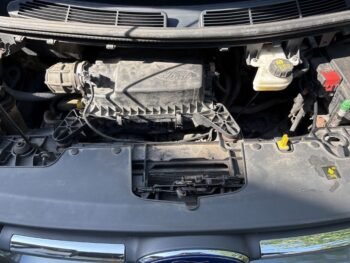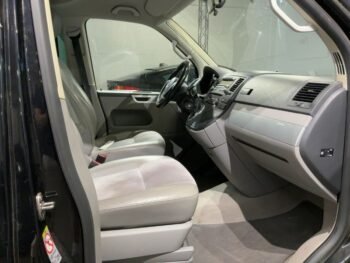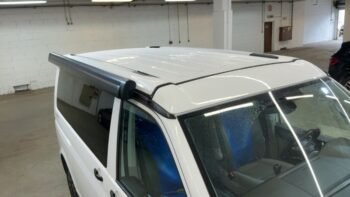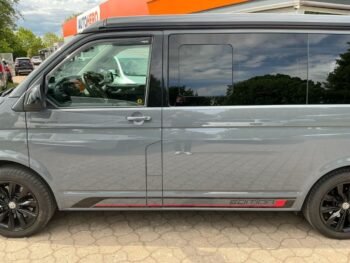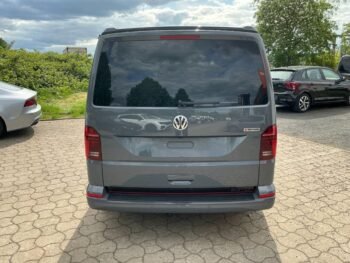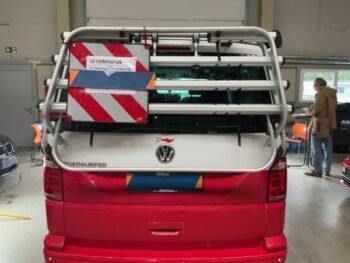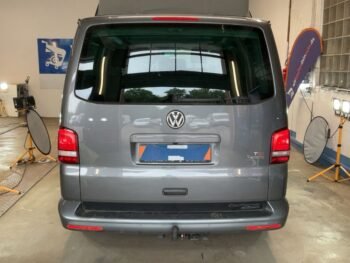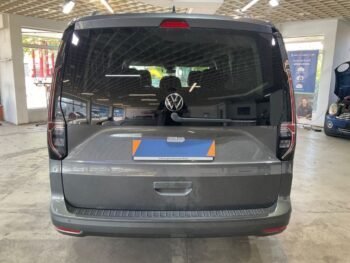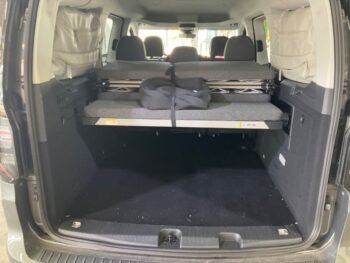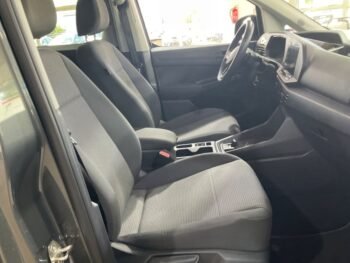Buying a used camper offers exciting opportunities for adventure. However, many buyers make common mistakes that can lead to frustration and additional costs.
Understanding the key considerations before making a purchase is essential. This article outlines common pitfalls and provides practical tips to ensure a successful buying experience.
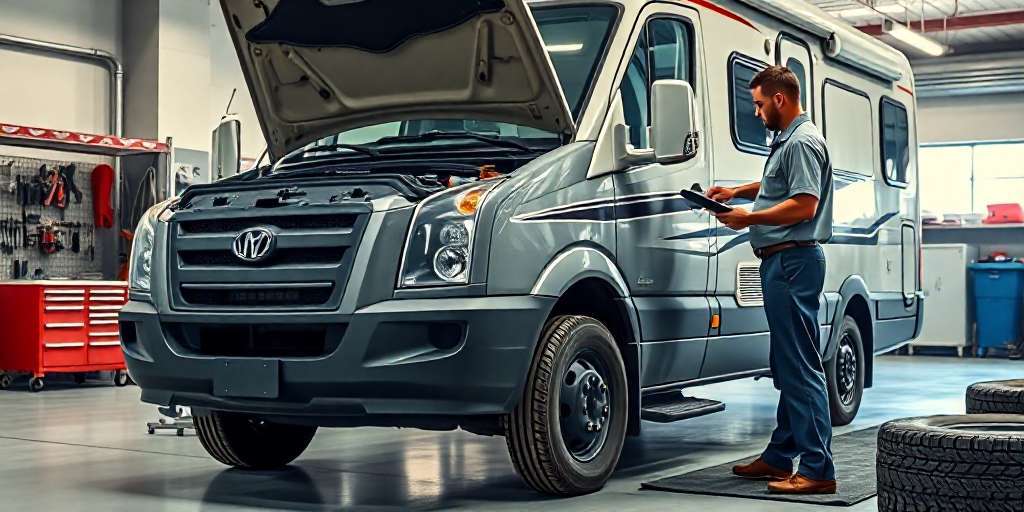
Understanding Your Travel Needs
Evaluating travel needs is crucial before embarking on the journey of purchasing a used camper. Creating an understanding of personal needs will lead to a more informed choice, ensuring that the right camper aligns with intended activities and lifestyle preferences.
Determining the Right Type of Camper
Choosing the proper type of camper is essential for an enjoyable travel experience. Campers come in various shapes and sizes, making it important to identify which vehicle best suits individual requirements.
- Types of Campers:
- Travel Trailers: Versatile and often easier to tow, good for families or weekend getaways.
- Fifth Wheels: Offer greater space and amenities, ideal for extended trips.
- Class A Motorhomes: Provide spacious living quarters, perfect for those seeking comfort and luxury.
- Class B Vans: Compact and easy to drive, suitable for solo travelers or couples looking for agility.
- Class C Motorhomes: A balance between space and driveability, often featuring a cab-over sleeping area.
- Your Travel Style:
Consider whether the trips will be frequent or occasional, and whether they will involve off-grid camping or staying at campgrounds with full services. - Seating and Sleeping Arrangements: Think about how many people will regularly travel to ensure everyone has adequate space and comfort.
Evaluating Storage Space Requirements
Understanding storage space needs is integral when buying a camper. Efficient storage ensures a hassle-free travel experience and can influence the choice of camper type.
- Assessing Personal Belongings:
Make a list of equipment, clothing, and accessories that will be taken on trips. This helps in determining the storage capacity required. - Cargo Capacity: Check the specifications of different campers to ensure they can accommodate the necessary cargo without exceeding weight limits.
- External Storage Options: Consider additional features, like exterior compartments or racks, which can enhance storage capabilities without compromising interior space.
Matching Camper Features to Activities
Different travel activities have unique requirements. Matching camper features to these activities can significantly enhance the overall experience on the road.
- Outdoor Activities:
If hiking, kayaking, or biking are focal points during trips, ensure the camper includes storage for such gear and features like an outdoor shower or awning. - Cooking and Dining Needs: Look for campers equipped with kitchens and dining areas that suit the food preferences and cooking habits of travelers.
- Buddy Trips: For group outings, consider features that allow for socializing, like comfortable seating and gathering spaces.
Vehicle Towing and Weight Considerations
Understanding towing capacity and weight considerations is crucial when buying a used camper. These elements ensure safe travels and enhance the overall experience on the road. An incorrect assessment could lead to mechanical failures, risky driving situations, or even accidents.
Checking Towing Capacity
Before committing to a used camper, it’s important to know the towing capacity of the vehicle intended for towing. This capacity varies based on the make and model of the vehicle. Each vehicle has a Gross Vehicle Weight Rating (GVWR), which is the maximum weight it can safely tow.
- Locate the Vehicle Manual: The owner’s manual typically contains specifics about towing limits.
- Consult Manufacturer Specifications: Online resources can provide towing capacities for various vehicle models.
- Consider Modifications: Some aftermarket modifications may alter tow ratings; factor these into calculations.
Calculating Total Weight
Beyond just knowing your vehicle’s towing capacity, calculating the total weight of the camper is essential. The total weight includes not just the camper’s dry weight but also considers additional items, such as personal belongings, water tanks, and propane.
- Dry Weight: This is the camper’s weight without any cargo.
- Fresh Water Weight: Water adds about 8.34 pounds per gallon, so factor in how much fresh water will be carried.
- Cargo and Passengers: Include the weight of all cargo items and passengers that will be in the vehicle during travel.
By adding these components, an accurate measurement of the total weight can ensure compatibility with vehicle capabilities, maintaining safety and performance.
Importance of Weight Distribution
Proper weight distribution is as important as knowing weight limits. An imbalanced load can affect towing stability and vehicle handling, making it harder to steer and control. Weight should be distributed evenly across the camper.
- Front-to-Back Distribution: Aim to place about 60% of the cargo in the front half of the camper and 40% in the rear for balanced towing.
- Sway Control: Properly distributing weight reduces the risk of sway, making for a safer driving experience.
- Regular Checks: Periodically checking the weight distribution as you load or unload the camper is essential to ensure safety.
Taking the time to understand vehicle towing and weight considerations will help prevent common issues and ensure safer travels while enjoying the camper experience.
Inspection and Maintenance Essentials
Inspecting and maintaining a used camper is crucial for ensuring longevity and optimal performance. A thorough inspection and regular maintenance can help identify potential issues before they escalate into costly repairs.
Conducting a Thorough Inspection with a Professional
Before finalizing the purchase of a used camper, an in-depth inspection is essential. This should be done with the assistance of a qualified RV inspector who specializes in evaluating campers. Here are key areas to focus on during the inspection:
- Exterior Condition: Check for signs of damage, rust, or deterioration. Look for any cracks in the siding, and inspect seams for water leaks.
- Roof Inspection: A vital part of the camper’s structure, the roof should be examined for wear and damage. Look for sagging areas or cracks that could lead to leaks.
- Electrical Systems: Ensure all lights, appliances, and outlets are functional. Test the battery and any solar systems installed in the camper.
- Plumbing System: Inspect for any signs of leaks or water damage. Check that faucets, toilets, and water pumps are operational.
Identifying Common Issues That Need Repairs
During the inspection, it’s important to identify common issues that frequently affect used campers. Being aware of these problems can help avoid unexpected repairs:
- Water Damage: This can manifest as mold, mildew, or wood rot. Areas around windows, doors, and roofs are particularly prone to leakage.
- Electrical Problems: Faulty wiring can be a fire hazard. Inspect all wires for fraying and ensure that the electrical system operates safely.
- Brake System Issues: Examine the brake components for functionality. Ensure that there are no unusual noises or signs of wear when testing the brakes.
- Tire Condition: Tires should be checked for tread wear and cracking. They should also be properly inflated to ensure safety during travel.
Keeping Your Camper in Top Shape
Regular maintenance is equally important once the camper has been purchased. Establishing a maintenance routine ensures optimal performance and increases the camper’s lifespan. Key maintenance tasks include:
- Routine Inspections: Schedule regular check-ups to identify potential issues early. This includes checking systems such as plumbing, electrical, and braking.
- Fluid Checks: Regularly check and change fluids, including engine oil and transmission fluid, to keep the mechanical systems running smoothly.
- Cleaning and Sealing: Clean the camper regularly to avoid mold and health hazards. Apply sealants to roofs and other exposed parts to protect against weather damage.
- Winterization: If the camper will be stored during the winter, proper winterization procedures should be followed. This includes draining water systems and protecting pipes from freezing.
Financial Aspects of Buying a Used Camper
Understanding the financial elements involved in purchasing a used camper is crucial for making an informed decision. This section explores different financing options, long-term costs, and the impact of depreciation on value retention.
Understanding Financing Options
When looking to finance a used camper, it’s essential to familiarize oneself with the various financing routes available. Most buyers opt for loans tailored specifically for recreational vehicles (RVs), which often have terms that differ significantly from conventional auto loans. Examining these options can lead to a more manageable repayment plan.
- Bank Loans
- Credit Unions
- Dealership Financing
- Peer-to-Peer Lending Platforms
Each of these avenues has its potential benefits and drawbacks. For instance, credit unions typically offer lower interest rates but may have stricter membership requirements. Understanding the nuances of each option can aid in making the best financial choice.
Avoiding Costly Surprises in Long-term Costs
Many buyers focus solely on the initial purchase price of the camper, neglecting the ongoing expenses that can accumulate over time. Knowing these costs can prevent unexpected financial burdens down the road. It’s advisable to keep the following costs in mind:
- Insurance: Costs can vary widely, so it’s important to shop around for the best rates.
- Maintenance: Regular upkeep is vital for extending the life of the camper, which can include oil changes, tire rotations, and checks on essential systems.
- Fuel: Depending on the size and engine of the camper, fuel costs can be significant, especially during long-distance travels.
- Campground Fees: Some campsites charge higher rates for larger campers or during peak seasons.
Considering these expenses will assist in creating a realistic budget that encompasses all aspects of camper ownership.
Depreciation and Value Retention
Depreciation is an unavoidable factor when it comes to buying any vehicle, including campers. Understanding how depreciation affects resale value can influence the purchasing decision. Generally, campers can lose a significant portion of their value in the first few years after purchase. Buyers should consider the following:
- Brand and Model Reputation: Certain brands hold their value better than others due to reliability and build quality.
- Age of the Camper: Older models naturally depreciate less after the initial dip, making them more appealing from an investment standpoint.
- Condition and Maintenance History: A well-maintained camper will tend to retain more value compared to one with a poor maintenance record.
Those considering the purchase of a used camper should carefully weigh these factors, especially if they plan to sell it in the future. Understanding depreciation can help navigate the financial landscape of owning a used camper.
Practical Tips for a Successful Purchase
Making informed choices during the buying process can greatly enhance the experience of purchasing a used camper. Here are crucial strategies that can guide prospective buyers toward a successful acquisition.
Creating a Comprehensive Budget
Establishing a detailed budget requires careful consideration of various factors. A financial plan should extend beyond the initial purchase price of the camper. The following elements should be integrated into the budget:
- Insurance Costs: Research insurance options to find the coverage that fits financial needs and camper usage.
- Maintenance Expenses: Consider how much regular maintenance might cost, including tires, brakes, and interior repairs.
- Fuel Prices: Estimate fuel consumption based on the camper’s specifications and trip frequency.
- Camping Fees: Include the costs of booking campsites, which can vary based on location and amenities.
- Storage Costs: If applicable, factor in monthly fees for camper storage during off-seasons.
By thoughtfully compiling these costs, buyers will gain a clearer picture of the financial commitments associated with owning a camper.
Negotiating with Sellers
Once a suitable camper is identified, negotiations can commence. Success in negotiation often comes from preparedness and strategy. Consider the following approaches:
- Research Market Value: Before negotiating, take time to research similar models to understand their market prices.
- Highlight Issues: If any concerns arise during the inspection, use these points as leverage to negotiate a lower price.
- Be Willing to Walk Away: A clear understanding of the budget allows buyers to stay firm on their limits, even if it means leaving the deal behind.
- Timing Matters: Sellers may be more willing to negotiate towards the end of the month or season, when they’re motivated to make a sale.
Utilizing Checklists for Final Purchase Decisions
Checklists can be effective tools in the buying process, ensuring that all aspects are duly considered before finalizing a purchase. A well-structured checklist should include:
- Inspection Checklist: A list of key components to inspect thoroughly, such as plumbing, electrical systems, and exterior conditions.
- Document Review Checklist: Required documents should be collected and reviewed, including titles, maintenance records, and warranties.
- Functionality Checklist: Testing appliances and systems within the camper to ensure everything operates as expected can prevent future complications.
- Final Cost Assessment: Revisiting the budget to ensure all anticipated costs align with the purchase price can help avoid overspending.
These practical tools can streamline the buying process, making it easier to keep track of essential tasks and decisions.
Common Mistakes and How to Avoid Them
There are several frequent errors made when purchasing a used camper. Recognizing these common pitfalls can lead to a more satisfying ownership experience.
Purchasing Too Much or Too Little Camper
Finding the right size camper is crucial for a successful purchase. Many buyers either opt for an overly large camper or a model that is too small for their needs. This can create a host of issues during travel, including difficulty maneuvering or lack of comfort.
- Assess family size and travel plans: The number of travelers significantly influences the ideal size of the camper.
- Consider storage capacity: A spacious model may be required if equipment for outdoor activities is often packed.
- Test various layouts: Visiting dealers or RV shows allows potential buyers to see firsthand which sizes work best.
Neglecting the Road Test Before a Trip
A road test is essential when considering a used camper. Skipping this step can lead to unexpected issues that can ruin a trip. It’s advisable to understand the vehicle’s handling and features prior to any long journey.
- Take a short outing: A short drive allows buyers to assess the performance of the camper in real traffic conditions.
- Evaluate braking and steering: Ensure that these critical systems function reliably during the road test.
- Familiarize with controls: Getting accustomed to the layout and operation of features is vital for a smooth experience.
Overlooking the Importance of Storage Solutions
Effective storage is often overlooked but is an essential factor in camper usability. Insufficient storage can lead to clutter and difficulties in organizing personal items during trips.
- Evaluate available compartments: Check how many storage areas are present and assess their accessibility.
- Consider add-ons: Many campers allow for additional storage solutions, such as racks or organizers.
- Packing strategically: Organizing belongings based on accessibility for frequent items can enhance the travel experience.

